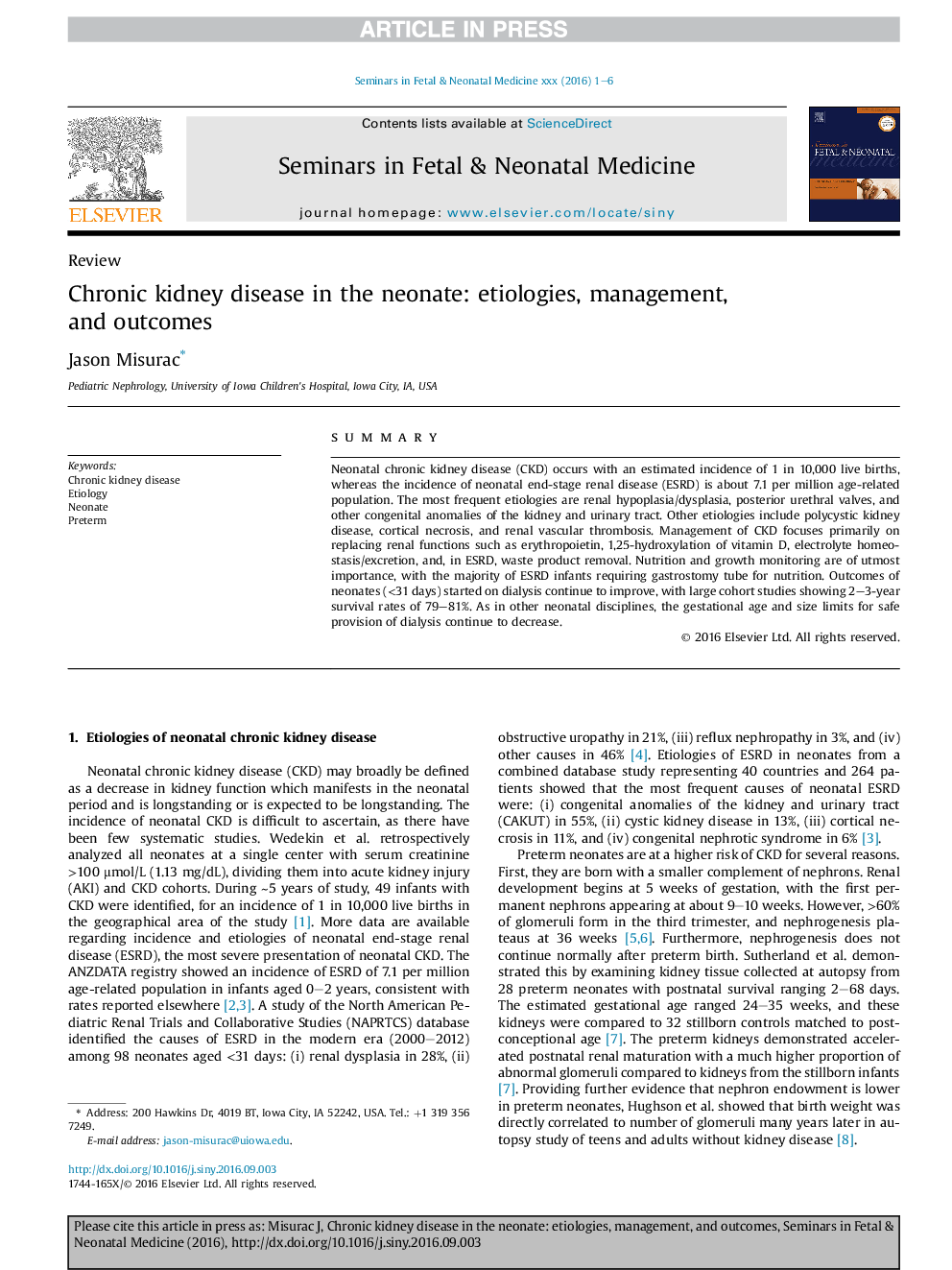| کد مقاله | کد نشریه | سال انتشار | مقاله انگلیسی | نسخه تمام متن |
|---|---|---|---|---|
| 5696949 | 1410286 | 2017 | 6 صفحه PDF | دانلود رایگان |
عنوان انگلیسی مقاله ISI
Chronic kidney disease in the neonate: etiologies, management, and outcomes
ترجمه فارسی عنوان
بیماری مزمن کلیه در نوزادان: علل، مدیریت، و نتایج
دانلود مقاله + سفارش ترجمه
دانلود مقاله ISI انگلیسی
رایگان برای ایرانیان
کلمات کلیدی
بیماری مزمن کلیوی، اتیولوژی، نوزاد زودرس
موضوعات مرتبط
علوم پزشکی و سلامت
پزشکی و دندانپزشکی
زنان، زایمان و بهداشت زنان
چکیده انگلیسی
Neonatal chronic kidney disease (CKD) occurs with an estimated incidence of 1 in 10,000 live births, whereas the incidence of neonatal end-stage renal disease (ESRD) is about 7.1 per million age-related population. The most frequent etiologies are renal hypoplasia/dysplasia, posterior urethral valves, and other congenital anomalies of the kidney and urinary tract. Other etiologies include polycystic kidney disease, cortical necrosis, and renal vascular thrombosis. Management of CKD focuses primarily on replacing renal functions such as erythropoietin, 1,25-hydroxylation of vitamin D, electrolyte homeostasis/excretion, and, in ESRD, waste product removal. Nutrition and growth monitoring are of utmost importance, with the majority of ESRD infants requiring gastrostomy tube for nutrition. Outcomes of neonates (<31 days) started on dialysis continue to improve, with large cohort studies showing 2-3-year survival rates of 79-81%. As in other neonatal disciplines, the gestational age and size limits for safe provision of dialysis continue to decrease.
ناشر
Database: Elsevier - ScienceDirect (ساینس دایرکت)
Journal: Seminars in Fetal and Neonatal Medicine - Volume 22, Issue 2, April 2017, Pages 98-103
Journal: Seminars in Fetal and Neonatal Medicine - Volume 22, Issue 2, April 2017, Pages 98-103
نویسندگان
Jason Misurac,
